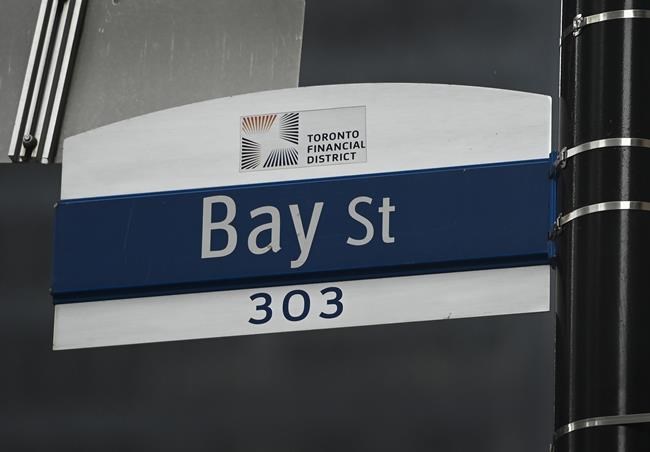TORONTO — North American stock markets dropped Thursday despite efforts by the chairman of the Federal Reserve to reassure investors that interest rates aren't about to increase.
The S&P/TSX composite index closed down 194.95 points at 18,125.72, despite strength in the energy sector as oil reached its highest level in more than two years.
In New York, the Dow Jones industrial average was down 345.95 points at 30,924.14 and the S&P 500 index lost 51.25 points at 3,768.47.
The Nasdaq composite fell 274.28 points or 2.1 per cent to 12,723.47, the lowest level since early January.
Market jitters followed as the 10-year U.S. bond yields again increased above 1.5 per cent.
Investors are worried that the U.S. vaccine rollout will spur a quicker economic recovery and prompt the central bank to hike interest rates sooner than they expect.
Fed chairman Jerome Powell tried to tame expectations by insisting Thursday that rates won't rise and quantitative easing won't taper off until the U.S. reaches his maximum employment goals.
"The market was not reassured by that because after the speech the market continued to go down," said Pierre Cleroux, chief economist for the Business Development Bank of Canada, adding he thought Powell's message was clear.
The United States is still down 10 million jobs from before COVID-19 struck.
"The initial recovery was quite strong, but since November they haven't created a lot of jobs because the second wave of the virus was very important in the U.S.," Cleroux said in an interview.
Powell said he's willing to accept inflation rising above two per cent, saying it won't change the bank's long-term inflation goals.
Canada's largest stock index dropped even though the energy sector had a strong day on higher crude oil prices.
The April crude contract was up US$2.55 at US$63.83 per barrel after hitting an intraday high of $64.86. The April natural gas contract was down seven cents at nearly US$2.75 per mmBTU.
Crude climbed to its highest level since October 2018 after OPEC decided Thursday not to raise its production for April despite a recent rise in prices.
"This is sending the signal that they are going to wait until they readjust production to the increase of the demand," Cleroux said.
Canadian oil producers got a lift with shares of MEG Energy Corp. surging 9.8 per cent while Vermilion Energy Inc. rose 5.6 per cent and Cenovus Energy Inc. gained 4.9 per cent.
Despite the oil price increase, the Canadian dollar slipped, trading for 79.13 cents US compared with 79.17 cents US on Wednesday.
Consumer staples were the only other positive sector on the day.
Health care, technology and consumer discretionary were the biggest laggards among the nine losing major sectors.
The health care sector, which includes cannabis producers, lost 4.9 per cent as Aphria Inc. fell 8.2 per cent.
Technology decreased 3.3 per cent as shares of Kinaxis Inc. plunged 17 per cent, Lightspeed POS Inc. fell 9.1 per cent and Shopify Inc. was down 5.8 per cent.
Materials were also lower as metal prices fell with gold hitting its lowest level in nine months. Hudbay Minerals Inc. decreased 7.7 per cent.
Cleroux believes Thursday's market sell-off will be temporary because inflation is still low.
"This worry that interest rates are going to increase faster than expected, I don't think it's based on solid grounds so I think the market is going to come back."
This report by The Canadian Press was first published March 4, 2021.
Companies in this story: (TSX:HBM, TSX:SHOP, TSX:LSPD, TSX:KXS, TSX:APHA, TSX:MEG, TSX:VET, TSX:CVE, TSX:GSPTSE, TSX:CADUSD=X)
Ross Marowits, The Canadian Press




